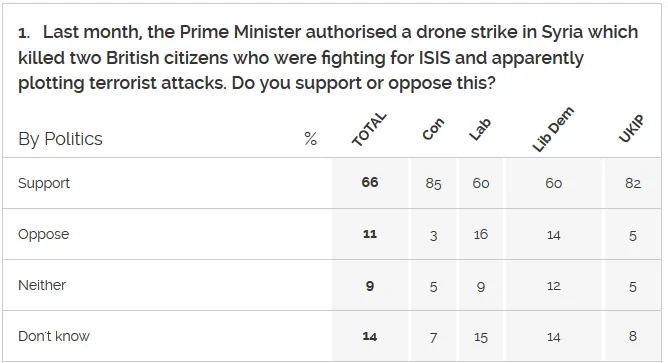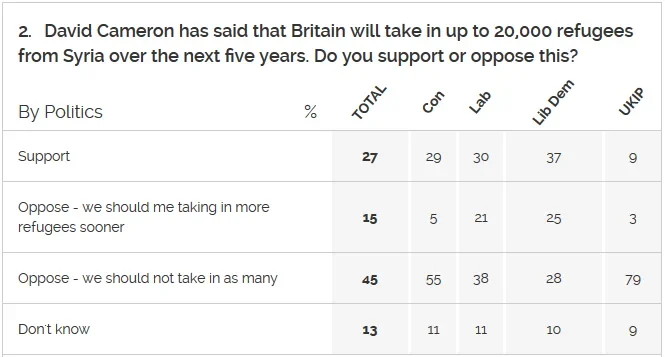Outside Westminster, the reaction to the news of RAF strikes on British ISIS fighters is overwhelmingly supportive
It is often said that, when he stands up to speak in the Commons, the prime minister needs to be conscious of two different audiences: the MPs in the chamber and the people watching the news clips at home. The distance between these two audiences is rarely as evident as in the response to yesterday’s statement, in which David Cameron announced two important things.
The first was that last month, the RAF conducted a drone strike within Syria targeting a British citizen who was fighting for ISIS and apparently plotting terrorist attacks on British soil. Immediately the focus of the MPs in the chamber and in the political media was on the legal basis for the attack, and whether it technically defied the Commons vote against taking part in military action in Syria.
However, YouGov live polling conducted overnight and throughout this morning reveals that the public take a much clearer view. 66% of the public support the decision, compared to only 11% who oppose it (the rest have no opinion or are not sure).
This clear majority is found across political groupings – including among Labour, Lib Dem, UKIP and Conservative voters.

The second announcement contained in the prime minister’s statement was a pledge to accept 20,000 Syrian refugees over the lifetime of this parliament. Here, he once again faces criticism from all sides, from a number of different audiences. The number had to be big enough to show some good will to his counterparts in France and Germany, during a time when he needs to maintain good relations, but not so big as to overly provoke voters at home (who as our research showed over the weekend remain predominantly against accepting any large number).
Being criticised on both sides is actually a comfortable position for a political leader to be in, as it suggests moderation, and the results of our overnight live polling the reaction to this second announcement put him about where he would want to be.

On both of these issues, the prime minister has the comfort of knowing that despite the emphasis of his opposition in Westminster, most voters are more 'conservative' even than him.
9696 UK adults were questioned 7th-8th September 2015
Image from PA









